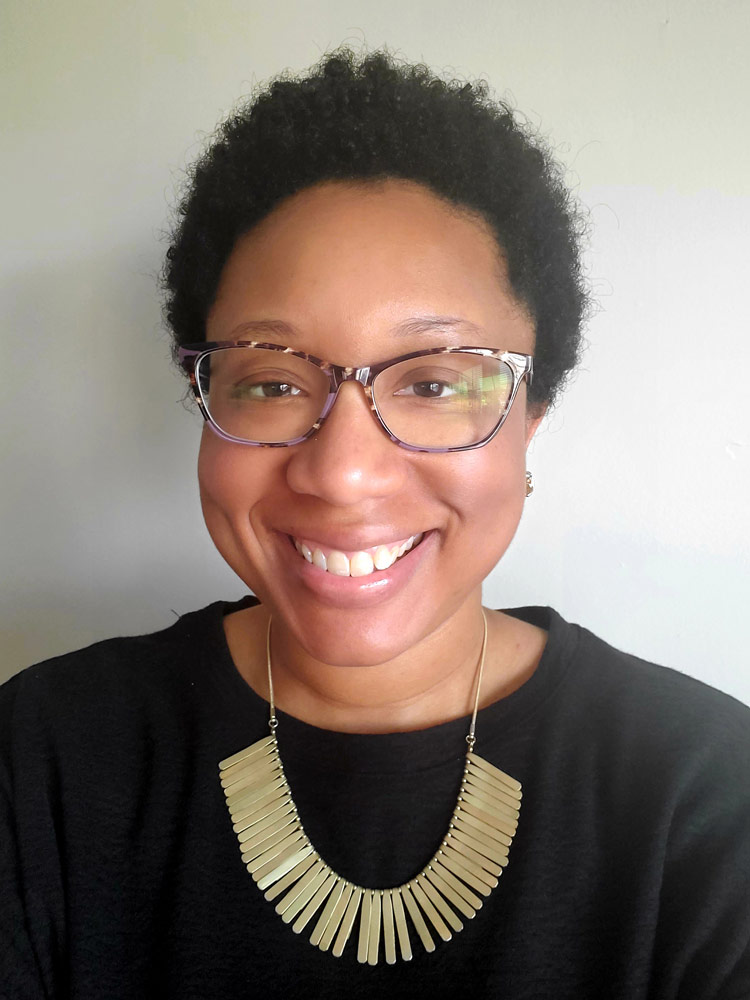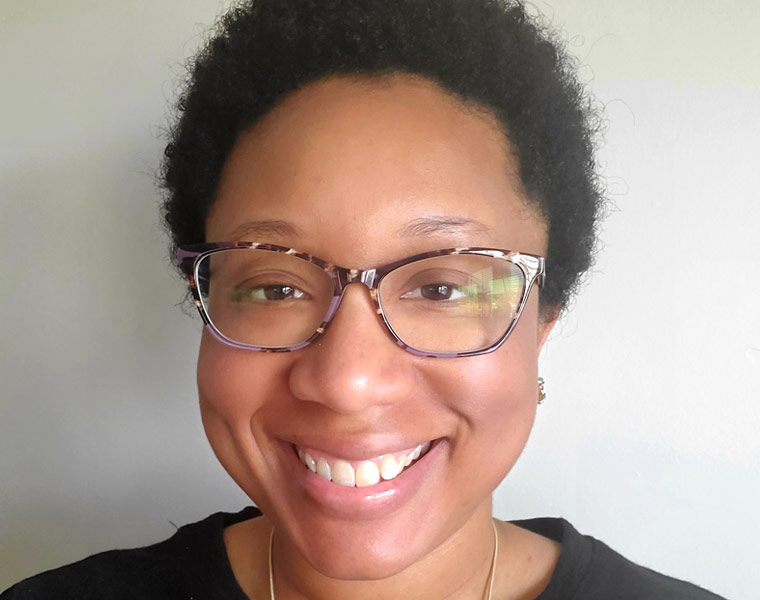
Over the past year, students have faced extraordinary challenges. From a pandemic disrupting traditional learning modes to calls for racial justice, many students are reporting added anxieties to the typical stresses of college life.
In response, the staff in Case Western Reserve University’s Office of University Health and Counseling Services have been hard at work to provide enhanced services. Naomi Drakeford, the multicultural specialist, has been a key player in those efforts.
“Racial unrest, the pandemic, the election—all of these events affect mental health,” Drakeford said of the past year.
Drakeford’s work is centered on offering support to students who are part of historically marginalized communities, positioning her in a critical role as protests surged in the wake of George Floyd’s death. As a result of the unrest, University Health and Counseling Services launched a BIPOC Support Space for students. There, Drakeford offers safe, one-one-one discussions with students who are able to share their experiences of racism, sexism or other concerns.
Drakeford also facilitates other support groups for students of color and women earning PhDs.
Watching students transform and move from a place of self-doubt, uncertainty of their identity or depression to a place where they can heal—and be able to drive that growth—is rewarding for Drakeford.
“For my time with them to be one of those spaces and to see them reach a space where they’re proud of who they are is amazing,” Drakeford said.
Drakeford also wants students to know that University Health and Counseling Services is for them, and they can request what they need, such as a counselor who shares certain identities.
To further promote the health and well-being of diverse student populations, Drakeford is helping plan “College Mental Health and Well-being: Supporting Equity through Innovation, Responsiveness and Action,” an equity symposium Friday, April 30, from 9 a.m. to 1:30 p.m. Members of the CWRU community can register to participate.
Supporting college students
Drakeford knew early on as a master’s student in community counseling at the University of Akron that she wanted to work with college students. She’s now worked at five college counseling centers in some capacity, including Case Western Reserve’s.
During college, Drakeford said, students face heightened stress, and it’s when mental illnesses can often present. This time of change for students also is an exciting period in their lives, and counseling can offer them an outside perspective.
“I knew I wanted to work with this population because it’s such an exciting time of life, it’s one of development, everyone’s trying to figure out who they are, what they want to do, what types of relationships [they] want to have with themselves] but also with other people,” she explained.
Drakeford views college experiences with therapy as a foundation students can build upon for future interactions with mental health services.
And she notes that it’s important that students know that there’s never a bad time to seek out counseling—things don’t have to be “really bad” to seek it out. She has encountered graduating students who express that they have been wanting to use University Health and Counseling Services’ resources for years, but only just made the decision to come in.
“You really don’t have to wait,” she said. “If you’re just feeling stressed and could use some support, if you’ve had a past experience and want to talk about it or you just need an outlet maybe things are going fine, you just want to continue to feel good, use us.”
While the last year has been challenging all around, it also resulted in an important lesson for Drakeford.
“I’ve learned more about my own resilience, and also the resilience of others—and that includes my colleagues and students,” she said.
Get to know more about Drakeford in this week’s five questions.
1. What is something cool you’ve learned at CWRU this academic year?
Sometimes I can be a bit of a nerd, so one of the things I learned was about the early mascots from before we became CWRU. One of the mascots from Western Reserve University was the Red Cats, which has a very intimidating image. So that was super fun.
2. Do you prefer to get work done early in the morning or late at night?
I’m not exactly a morning person, but I would say given those options, early in the morning. I think my brain is just fresher earlier in the day.
3. What do you consider the greatest invention?
The internet. It’s really given us the opportunity to have limitless access to knowledge at our fingertips, ways to stay connected to others, work and learn and even new ways to have fun.
4. Outside of school and work, what’s your favorite way to spend time?
My favorite way to spend time is with people, namely friends and family. We don’t have to be doing anything extra special, but I really value quality time with others, getting to laugh and catch up and hopefully sharing a meal because I think food always makes it better.
5. What’s your favorite thing about Case Western Reserve?
Hands down, my favorite thing about CWRU is the students and that, in my role at UHCS, I have an opportunity to work with students one on one and in groups. I can truly say they’re amazing. Our students are so brilliant and focused and resilient. They’re change agents and they genuinely care about others in society.

